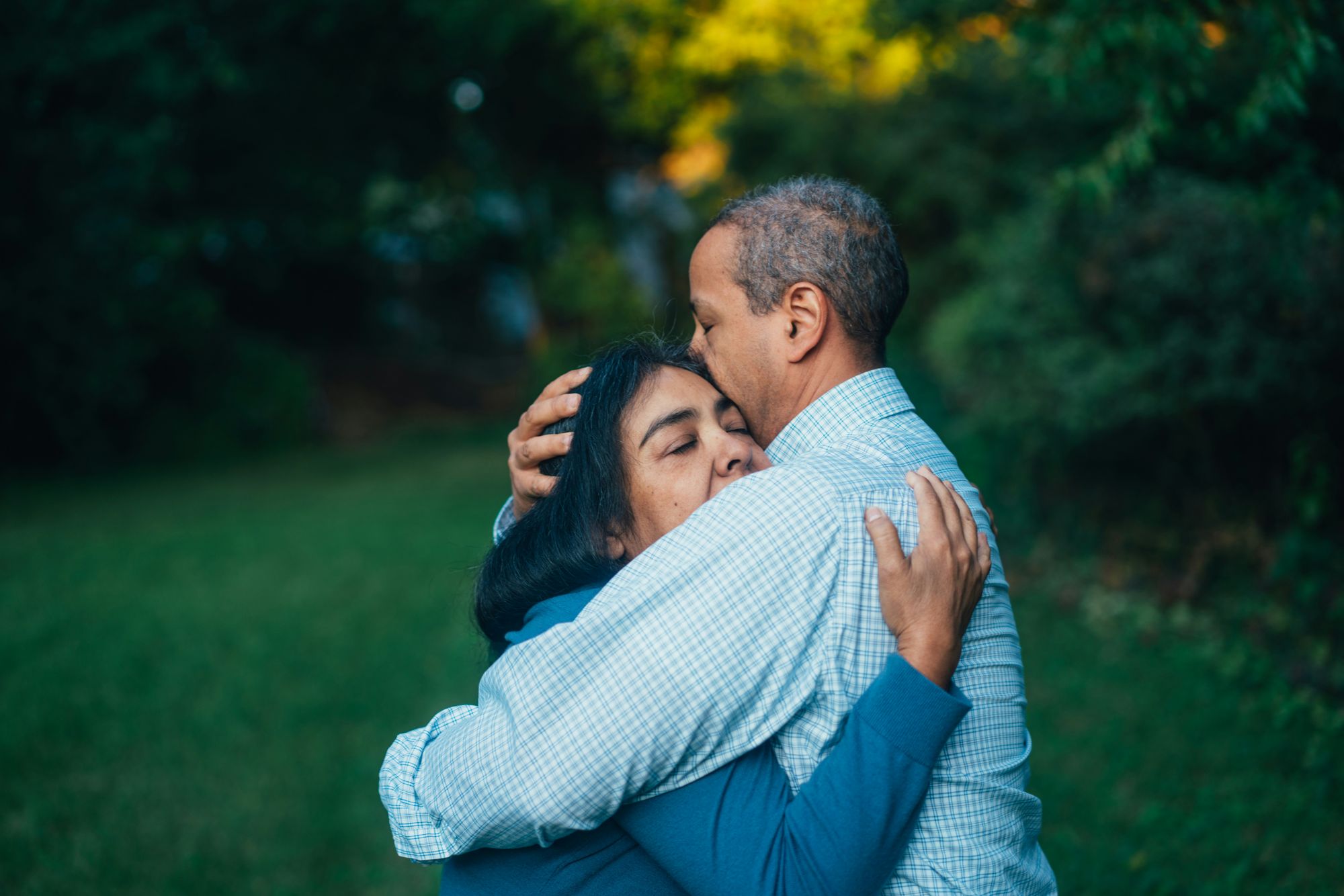What to Say (and Not Say) When Someone Loses Their Spouse or Partner

The death of a spouse or life partner is one of the most devastating losses someone can face. When a husband, wife, boyfriend or girlfriend passes away, the grief and pain can feel truly insurmountable. As friends or family members, we want to provide comfort and support, but may struggle with finding the right words during such a heart-wrenching time.
While nothing can take away the profound sadness, offering empathy, compassion and a listening ear can help the bereaved feel less alone in their mourning. If someone close to you has recently lost the love of their life, consider these suggestions on what to say and what to avoid:
What to Say
"I'm so sorry you're going through this unimaginable loss." An acknowledgment of their life-shattering grief, along with not trying to claim you can truly understand the depth of what they're feeling.
"They were so loved, and your relationship was truly special." Affirming their profound love and emotional intimacy as a couple.
"What was one of your favorite qualities about them? I'd love to hear." Asking gentle questions to spark recollections provides healing opportunities to celebrate their partner's spirit and uniqueness.
"I'm here anytime, day or night, if you need someone to just listen as you talk about them or process this loss." Make it clear you are fully available without judgment to lend an ear or supportive presence.
"It's okay to feel everything you're feeling right now - the sadness, anger, regrets. Grief has no rules, and there's no right or wrong way through it." Give them permission for the intensity and fluctuation of their emotions without timelines or expectations.
What to Avoid
"At least you have children/family to get you through this." While meant to point out support systems, this unintentionally diminishes the enormity of their loss and human need to fully emotionally process it.
"They're in a better place now and no longer suffering." This attempts to reframe the loss in a more positive light, when grievers simply need their pain witnessed and validated first.
"You need to stay strong and take care of yourself for the kids/family." Positioning dependencies on them too soon puts unfair pressure and guilt before they have processed their own grief.
"Everything happens for a reason." This spiritual/religious platitude comes across as hollow when someone is drowning in fresh grief, even if meant sincerely.
"They wouldn't want you to be so upset and dwell on this." This implies their very real emotions are wrong, when there is no "should" in mourning a beloved partner.
"At least you had some good years together." This conversational segue unintentionally compares or measures their profound loss, when there is no length of time that would feel "enough."
Words of Comfort After Losing a Spouse or Partner
At the end of the day, simply being present and avoiding comments that unintentionally diminish the magnitude of their loss goes further than any words. Listening without judgement or advice, affirming how greatly their partner's presence mattered, and reminding the bereaved to be compassionate with themselves provides true comfort and solace during this impossibly painful time.
At Eirene, we believe that end-of-life planning should be comforting, transparent, and dignified. Too often, families struggle with the chaos, opacity, and expense of conventional funeral arrangements. We envision a better way - one centered on the belief that the end of life deserves as much beauty, grace, and meaning as the moments that came before.




